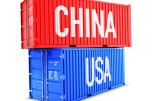Fidelity: What can investors expect in The Year of The Dragon?
Fidelity: What can investors expect in The Year of The Dragon?

The Year of The Dragon, according to tradition, is associated with good luck, accomplishment and strength. As investors across the region prepare to celebrate the Lunar New Year and hope for a better year for markets, Dale Nicholls, Portfolio Manager of Fidelity China Special Situations PLC, examines the investment outlook for China in the year ahead.
Following its initial reopening in 2023, sentiment towards China has been volatile, largely driven by challenges in the property sector, but as policymakers continue to respond with the aim of offsetting downside risks and restoring investor confidence, there are still opportunities to be found in the world’s second largest economy this Lunar New Year.
China is at a different point in the economic cycle to the West. Unlike Europe or the US, inflation has not been a problem in China and the government is taking measures to stimulate investment and consumption to support the post-COVID recovery.
Despite sluggish economic activity, the overall trend still points towards a continued recovery in growth. Consumer confidence remains soft, mainly due to a weakened property market, but the government is addressing this by implementing various measures including lower mortgage requirements and support for property developers.
Additional measures to boost both supply and demand in the sector may be required, but a substantial amount of household savings - accumulated recently for security - sets the stage for an upswing in consumer spending once confidence is restored.
n the face of a problematic property market in China, the refinancing conditions for property developers will likely remain challenging in the near term despite more supportive policies. However, this is not detrimental to all property developers. While we don’t expect a huge property rebound given the structural challenges, home prices are showing signs of resilience, especially in top tier cities.
Ultimately, the existing divergence between various developers could be magnified further. The indiscriminate sell-off has caused some mispricing, which provides an opportunity for active investors that can successfully identify the leading players, who are most likely to benefit from lower funding costs among peers and can gain market share while cash-strapped developers struggle.
Apart from the property crisis, job and wage cuts in 2023 have also hurt consumer confidence, resulting in weak demand. However, from our discussions with companies on the ground, we have the sense that the worst is behind us. Over the longer term, improving corporate earnings could be a key driver for investor confidence to come back. Meanwhile, valuations in the Chinese equity market remain compelling both in historical terms and compared with some other major markets. Clearly, a lot of pessimism over the economy appears priced into valuations.
Activity should also pick up with improving business confidence, which has been impacted by regulatory campaigns. There is cyclicality to regulation and the current policy orientation is shifting towards loosening, with more balance between growth and stability. After all, China’s long-term goal to double GDP per capita relies on a vibrant private sector and sustained growth.
The long-term plan of the Chinese government seeks to reduce the economy’s reliance on investment and property and pivot away from some of the country’s traditional growth drivers towards high-end manufacturing and domestic consumption.
The pace of innovation in China remains strong, primarily led by private sector enterprises in sectors such as industrials and health care. These factors are driving consolidation across a range of sectors, many of which remain very fragmented, such as building materials.
In emerging sectors, opportunities can be also found in the renewable energies and electric vehicle (EV) value chain, particularly those providing key components and services, such as battery manufacturers or auto parts suppliers. The huge sell-off has created opportunities to invest in those companies that have dominant market share in their home country, generate abundant cash flows and trade at compelling valuations. We’ve therefore been investing more in these areas.
Equally, while overseas investors may focus on the impact on China of de-globalisation and ‘near-shoring’ of industry, one consequence of this is an increasing preference among Chinese consumers for Chinese brands, resulting in domestic companies taking ever greater market share in what remains one of the world’s largest markets.










